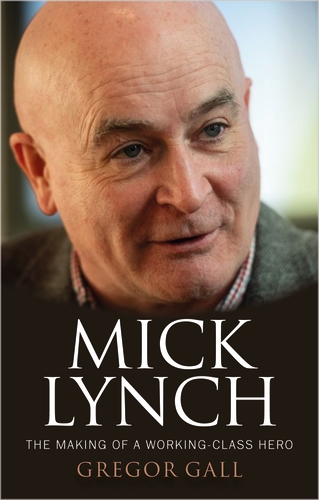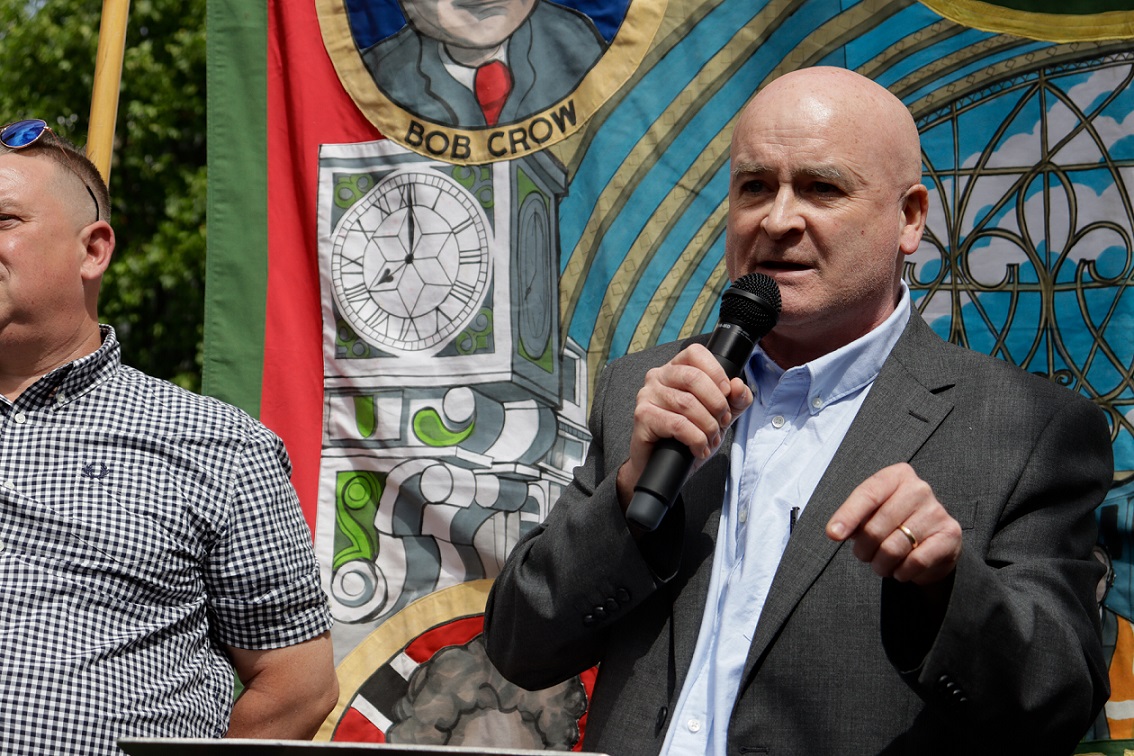The General Secretary of the National Union of Rail, Maritime and Transport Workers (RMT) shot to fame in 2022 when his union members took industrial action and went on strike.
 Sean Sheehan
Sean Sheehan
His television interviews with trashmongers like Piers Morgan and Richard Madeley are the stuff of legend and, to remind readers of just how good they were, Gregor Gall includes print excerpts from them in his insightful biography “Mick Lynch”.
More recently, Lynch has been back in the news with The Guardian newspaper reporting how he has said voters must ‘grow up’ and accept the fact that a Starmer government is the only alternative to the present one.
This is dismaying to read but the full text of the interview is not as accessible as the headline and The Guardian, most assiduous about persuading people to vote for Starmer-led Labour, is not above presenting news in ways that suit its agenda.
After reading this biography, it is difficult to think that Lynch harbours any illusions about the Labour leader and his serial lying and there is hope that he will not kow-tow to the authoritarianism that one suspects will become a hallmark of a Starmer government. This book is not a dry or starry-eyed biography and it puts social class at its forefront in examining how Lynch became the leader of his union.
Born into a London Irish family, he became an RMT activist after joining Eurostar as an electrician though his motive, after being blacklisted in the construction industry, was “to hide and earn some money for six months”. He was 54 before holding an official post in the union and, Gall argues, his identification with the working class and straight-talking politics helped him become General Secretary.

He is a pragmatic socialist and there are clear similarities between him and Jeremy Corbyn and John McDonnell.
Like them and his great predecessor in the RMT, Bob Crow, he gives voice to a moderate radicalism that the media seeks to portray as extremism because of the danger that too many people will support them.
Gregor Gill has written a perspicuous and knowledgeable account that analyses Lynch’s position and the state of industrial relations he has to contend with in the UK today. A straight, white man with a ready wit and keen intelligence becomes for Gall a prism for looking at issues of power, class and ideology. All trade unionists will all learn something from reading this book. What Lynch said to Novara Media in September 2023 will need recalling if – as seems very likely – a Labour government turns out in its essentials to be not that different to a Conservative one: “Nobody remembers those who comply with oppression. People remember the Tolpuddle Martyrs… Chartists… 1926, and the miners’ strike. Not because they gave in, but because they fought back. That’s what we have to do.”
“Mick Lynch: the making of a working-class hero”, by Gregor Gall, is published by Manchester University Press.












.jpg)












